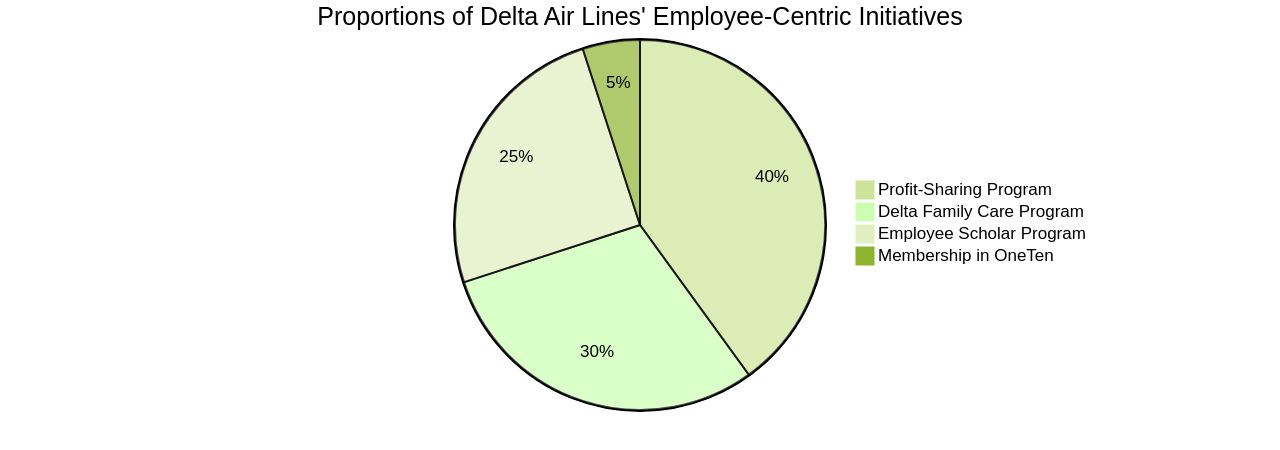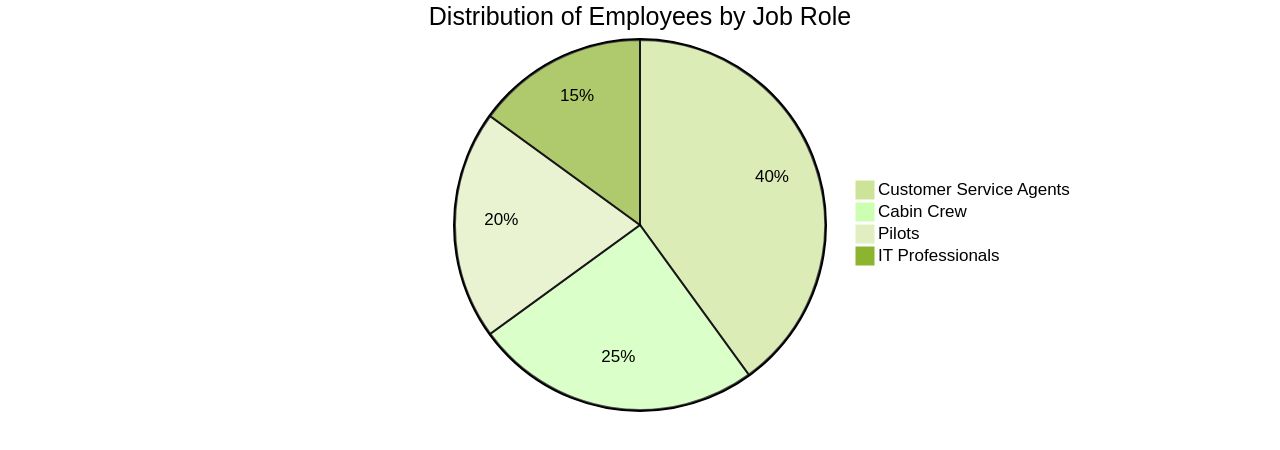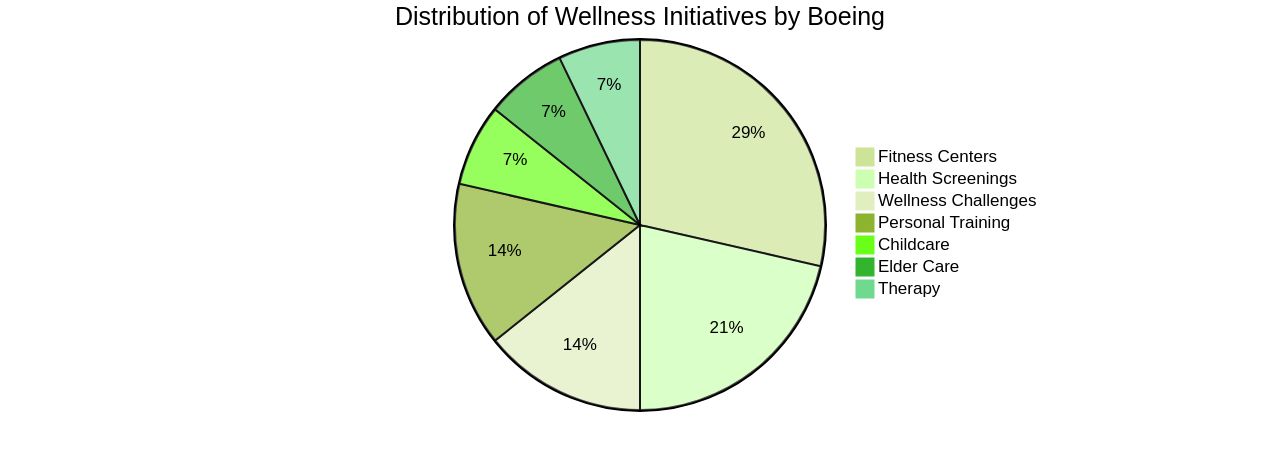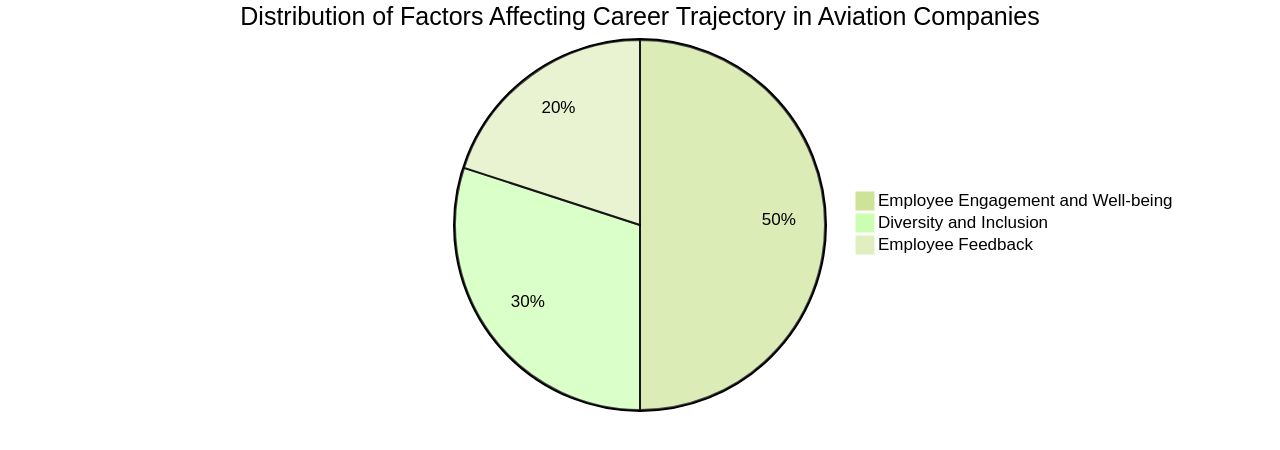Introduction
Aviation companies are constantly seeking ways to engage and retain their employees, recognizing the crucial role they play in their success. In this article, we will explore four case studies from prominent aviation organizations: Delta Air Lines, Emirates, Boeing, and United Airlines.
Each case study highlights unique initiatives and strategies implemented by these companies to promote employee engagement, development, well-being, and diversity. By examining these best practices, we can gain insights into creating a rewarding career in the aviation industry. So, let's dive in and explore the innovative approaches taken by these companies to cultivate a thriving workforce.
Case Study 1: Delta Air Lines' Employee Engagement Initiatives
Delta Air Lines, a premier aviation entity, has pioneered a series of employee-centric initiatives to foster a rewarding professional journey for its personnel. A notable endeavor is the 'Delta Family Care Program,' which offers extensive healthcare benefits to employees and their dependants. This program facilitates access to superior healthcare services, mitigating their financial stress and promoting overall wellness.
Equally noteworthy is the 'Employee Scholar Program,' which provides full tuition reimbursement for employees seeking advanced education. This initiative supports employees' personal and professional growth, simultaneously enhancing their skills and knowledge to the mutual benefit of the workforce and the company. Emulating Austrian Airlines' culture of individuality, flexibility, and inclusivity, Delta's initiatives underscore the importance of each individual in the intricate dynamics of an aviation company.
Austrian Airlines' employer brand, 'Creating Journeys Together,' resonates with Delta's approach, with the focus on creating an authentic and tangible brand identity that reveals the people behind the airline. Royal Schiphol Group's integrated thinking and reporting model, centered around creating long-term value with clear objectives for quality of life, quality of network, and quality of service, aligns with Delta's vision. Delta has successfully implemented a similar strategy, demonstrated by their profit-sharing program that paid out $1.4 billion in profits to employees in a single year.
Delta's commitment to workforce equity is evident in its membership of OneTen, a coalition of companies aiming to hire, train, and advance 1 million Black Americans into family-sustaining jobs with advancement opportunities by 2030. Delta has exceeded its target of staffing 25% of its corporate and management positions with employees who had previously worked in frontline roles, many of whom are from historically marginalized groups. In conclusion, Delta's multifaceted approach to employee engagement, coupled with its commitment to diversity, equity, and inclusion, positions it as an attractive employer in the aviation industry.

Case Study 2: Emirates' Commitment to Employee Development
Emirates, a leading aviation organization, fosters employee progression by offering comprehensive training and development initiatives. The Emirates Aviation University, one of their key programs, provides employees with avenues to gain aviation-specific knowledge and qualifications, thereby strengthening their career trajectory within the aviation industry. In addition to this, the company's Leadership Development Program identifies and cultivates employees with high potential for leadership roles.
This program prepares employees with the necessary skills and knowledge for leadership positions, thus propelling their career growth. Emirates also recruits a diverse array of professionals, from cabin crew and pilots to IT professionals and customer service agents, and ensures to provide them with extensive training. This commitment to employee development is reflected in their employment statistics, with the Emirates Group ending its financial year with over 102,000 employees, having welcomed 17,160 individuals in various roles throughout the year.
The company's Fly High initiative is a 36-month management trainee program that offers both on-the-job training and curated courses in aviation. After completion, the participants are placed in leadership roles and provided with further development opportunities. Moreover, Emirates is committed to providing full-time scholarships to UAE National employees of the Emirates Group, who are accepted into Masters Programs at top universities.
This initiative bolsters the Group’s Emiratisation strategy by ensuring the consistent growth of the Group’s UAE talent and providing them with additional learning opportunities to advance their careers. Emirates' commitment to employee development and growth has resulted in a successful company culture, with 47% of organizations with similar cultures seeing significant revenue increases in the past year. This focus on career development not only improves employees' skills, knowledge, and abilities but also enhances their performance and job satisfaction, thereby contributing to the overall success of the organization.

Case Study 3: Boeing's Employee Well-being Initiatives
As a global powerhouse in the aviation industry, Boeing is deeply committed to the holistic well-being of its workforce. The company has put in place the 'Boeing Employee Assistance Program', a confidential service designed to help employees and their families navigate personal and professional hurdles.
This initiative plays a crucial role in fostering mental health and overall well-being among Boeing's staff. Moreover, the company has implemented comprehensive wellness agendas that cater to physical health.
These include fitness centers, health screenings, and wellness challenges. By encouraging employees to embrace healthier lifestyles, Boeing not only contributes to their well-being but also cultivates a positive work culture.
This approach also helps to ensure employees have rewarding careers at Boeing. In the face of economic instability, frequent communication can alleviate employees' job security concerns.
For instance, Avanade has utilized team meetings to discuss the prevailing economic climate and reassure employees that their well-being remains a priority. Companies can also introduce training for employees on managing stress and avoiding burnout.
Furthermore, organizations can support their employees by providing services such as childcare, elder care, personal training, and therapy. Regular reminders about available services and their value can also be beneficial. As Herb Kelleher, founder and first CEO of Southwest Airlines, noted, prioritizing employees leads to customer satisfaction and shareholder happiness. In addition, companies should foster an environment where employees feel comfortable using well-being services without fear of penalty. Managers can set an example by using the services themselves. Regular feedback mechanisms can help identify which services are most beneficial and enjoyed by the employees. By investing in resources that support employees' physical, mental, and emotional health, companies can enhance performance and drive bottom-line results.

Case Study 4: United Airlines' Diversity and Inclusion Efforts
United Airlines is among the leading aviation companies that have taken proactive steps towards fostering diversity, equity, and inclusion (DEI) in the workplace. They have established initiatives like the 'United Airlines Employee Resource Groups,' which serve as a networking platform for employees from diverse backgrounds. This platform not only allows employees to share their experiences but also provides mutual support.
Moreover, the company has prioritized diversity in leadership through the formation of the 'United Airlines Global Diversity Leadership Council.' This council is committed to promoting DEI across all levels of the organization, ensuring equitable opportunities for career progression. One of the most notable initiatives by United Airlines is their commitment to train 50% of their pilots over the next decade to be women or people of color.
This commitment is a statement of their dedication to creating a workforce that mirrors the diversity of their customer base. Furthermore, United Airlines also recognizes the importance of addressing unconscious biases. They do this by providing diversity training and promoting awareness to ensure fairness and equal opportunity for all employees.
These initiatives are not only aimed at creating a positive work environment but also resonate with the company's customer-centric approach. By having a diverse workforce, United Airlines can better understand and meet the expectations of their diverse range of customers from around the world. In the end, United Airlines' commitment to DEI creates an empowering work environment where employees feel valued, leading to a more productive and harmonious workplace.
Best Practices: Creating a Rewarding Career in Aviation Companies
For an enriching career trajectory in aviation companies, it is paramount to integrate certain guidelines. First and foremost, companies must place employee engagement and well-being at the forefront by offering holistic healthcare benefits, employee development programs, and wellness initiatives. Such initiatives not only bolster employee satisfaction and loyalty but also enhance their overall well-being.
Moreover, cultivating a culture of diversity and inclusion is of utmost importance. A diverse workforce brings a plethora of perspectives and ideas to the table, propelling innovation and success. Inclusive practices ensure that every employee has equal opportunities for career progression, creating a rewarding career for all.
Finally, aviation companies should actively seek feedback from their employees and make continuous improvements based on their suggestions. This approach of valuing employee feedback empowers them and shows that their opinions and ideas are valued, further enriching their career experience. However, it is worth noting that while employee engagement has seen an upward trend, stress levels among employees have also increased.
This stress is linked with physical and mental health problems and lower productivity. This emphasizes the importance of simultaneously addressing employee engagement and well-being in the current and future workforce. Furthermore, the cost of replacing a departing employee can range from 16% to 213% of their annual salary.
On average, companies take 42 days to replace resigned employees. This not only triggers high costs in recruitment processes, headhunting, and related services but also increases the workload for those taking on tasks and responsibilities of the departed employee. This decrease in productivity due to the absence of a professional to cover a key role can have a negative impact on the company's bottom line.

Conclusion
In conclusion, the case studies of Delta Air Lines, Emirates, Boeing, and United Airlines highlight their innovative initiatives to promote employee engagement, development, well-being, and diversity. Delta Air Lines prioritizes healthcare benefits and education reimbursement while exceeding diversity targets.
Emirates focuses on employee development through programs like the Emirates Aviation University and Leadership Development Program. Boeing emphasizes holistic well-being through wellness agendas and support services.
United Airlines fosters diversity and inclusion through employee resource groups and a commitment to training pilots from diverse backgrounds. To create a rewarding career in aviation companies, prioritize employee engagement, well-being, diversity, and inclusion.
Offer holistic healthcare benefits, development programs, wellness initiatives, and seek feedback from employees. Addressing employee well-being alongside engagement is crucial for the current and future workforce. Additionally, retaining talent through effective engagement strategies is important due to the high costs of replacing departing employees. These case studies provide valuable insights into creating a thriving workforce within the aviation industry by prioritizing employee satisfaction and fostering a positive work culture.




